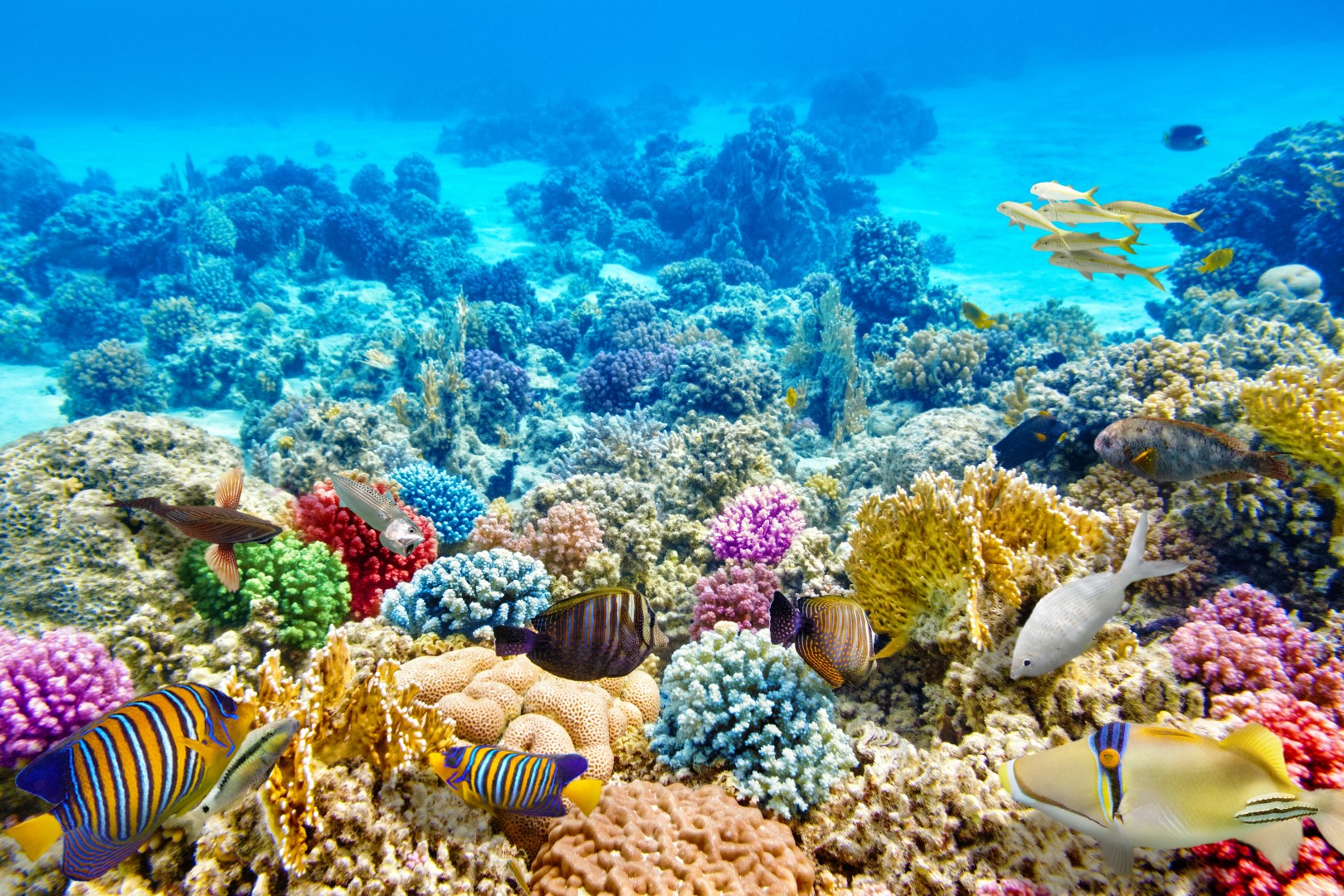But that is exactly what is happening. Bleaching was first observed in 1983. It was seen on a global level in 1998, then 2010, then for three consecutive years from 2015 to 2017.
“Coral bleaching events are growing so severe and so frequent around the planet that reef systems are fragmenting into isolated pockets,” said Obura. “Some of these will undoubtedly survive this century, but the highest scientific evidence tells us that, unless we do everything to limit warming to 1.5C, we will lose 99% of the world’s coral reefs in coming decades.”
Eleven of the 29 World Heritage reefs have already suffered bleaching. On current trends, UNESCO predicts this will rise to 25 by 2040.
More widely, at highest risk are reefs off of Saudi Arabia, Madagascar, Hawaii and Papua New Guinea, which are likely to suffer bleaching long before the global average 2043. Those with a greater – though still slim – prospect of survival may be off of Egypt, Australia (including the Great Barrier Reef), Cuba, Indonesia and the Philippines.
But there are other threats beyond warming and acidity. Off the Philippine island of Palawan, once pristine reefs have been badly damaged by sewage run off from tourists resorts, pollution from boats and reckless fishing, including the pumping of cyanide into the coral structure to stun fish that float out and get scooped up and sold off for Chinese home aquariums.
According to Vince Cinches, Oceans Campaigner of Greenpeace Southeast Asia, it is a calamity that this is happening in the Coral Triangle, which ought to be a refuge because it is one of the ocean regions most resilient to climate change “Even in the Philippines, we are fast losing our coral,” he said. “We need to reduce stress from overfishing, coastal development, pollution, mining, tourism and climate change.”
Although some conservationists are risking their lives to prevent this, economic pressures continue to grow and chances of coral survival are slim. The IPCC report noted that even if temperatures were held to 1.5C, between 70% and 90% of reefs would be lost.
A few of the more than 800 coral species have already been declared extinct, but as long as the major reef builders continue to exist, there is a faint possibility that this complex systems can be rebuilt if temperatures stabilise.
Scientists like Obura are increasingly turning to advocacy rather than just observation, but they say the last great function of corals might be to teach humanity to care better for other ecosystems.
“I’m of a generation of scientists watching them disappear. It’s very depressing,” he said. “Above 1.5C, in about 50 years, they will be ecosystems of legend, with beautiful virtual recreations and a treasure of historic, fantastic movies and images, but very little to see in real life.”
“We are trying to do more than record the decline by making activist statements. We need to get the message out that we must stop this happening to other eco-systems. That’s what motivates me. If we don’t take this lesson to restrict warming, then we’ll face much more of an impact.”













Comment